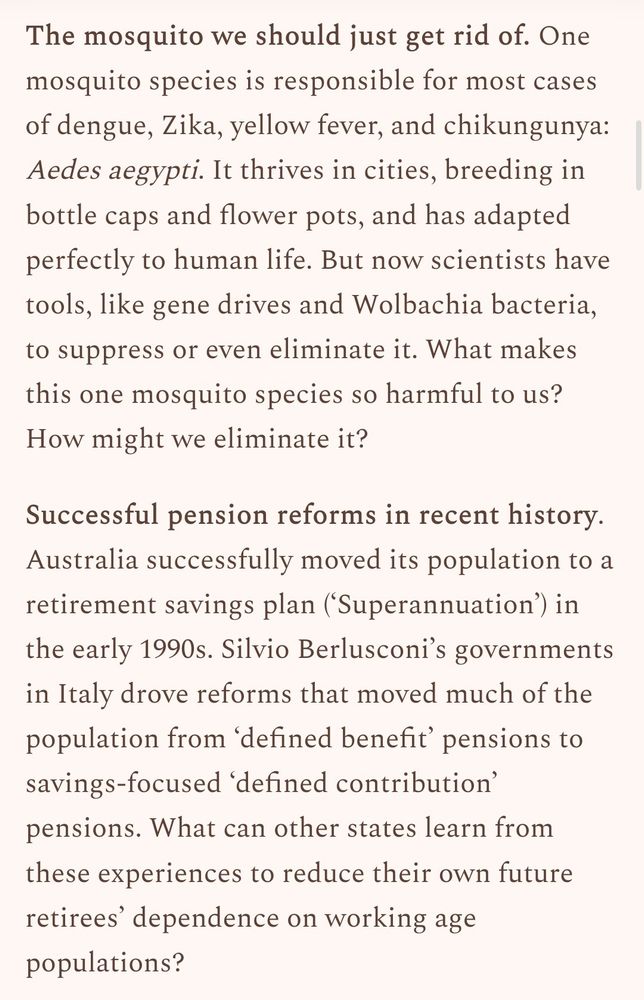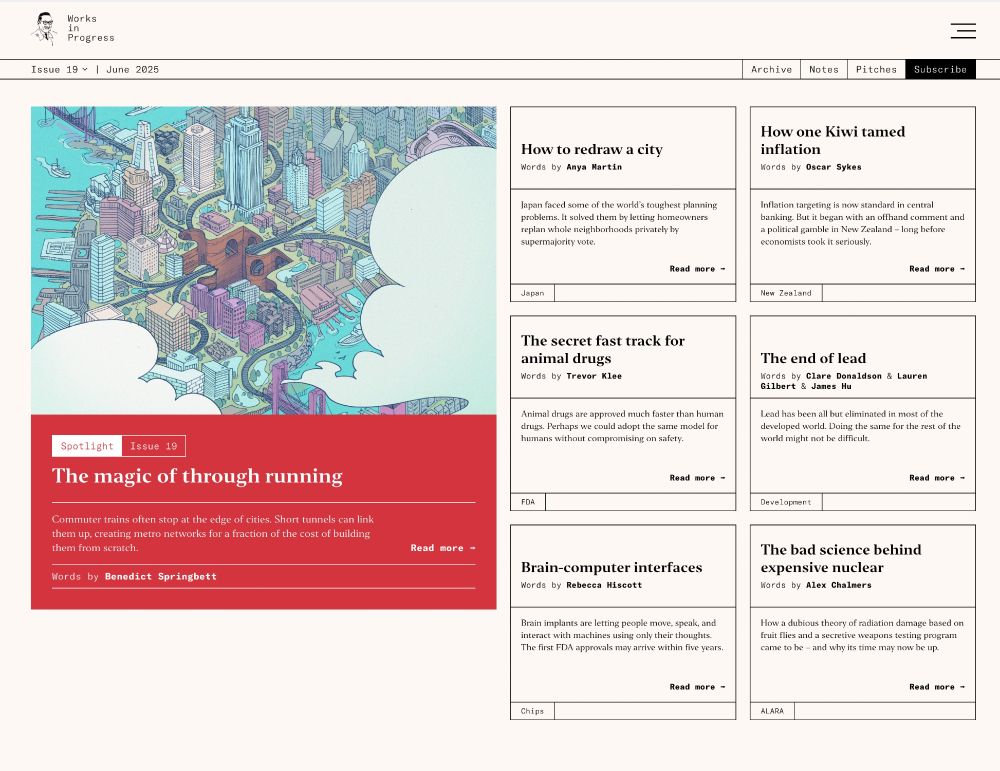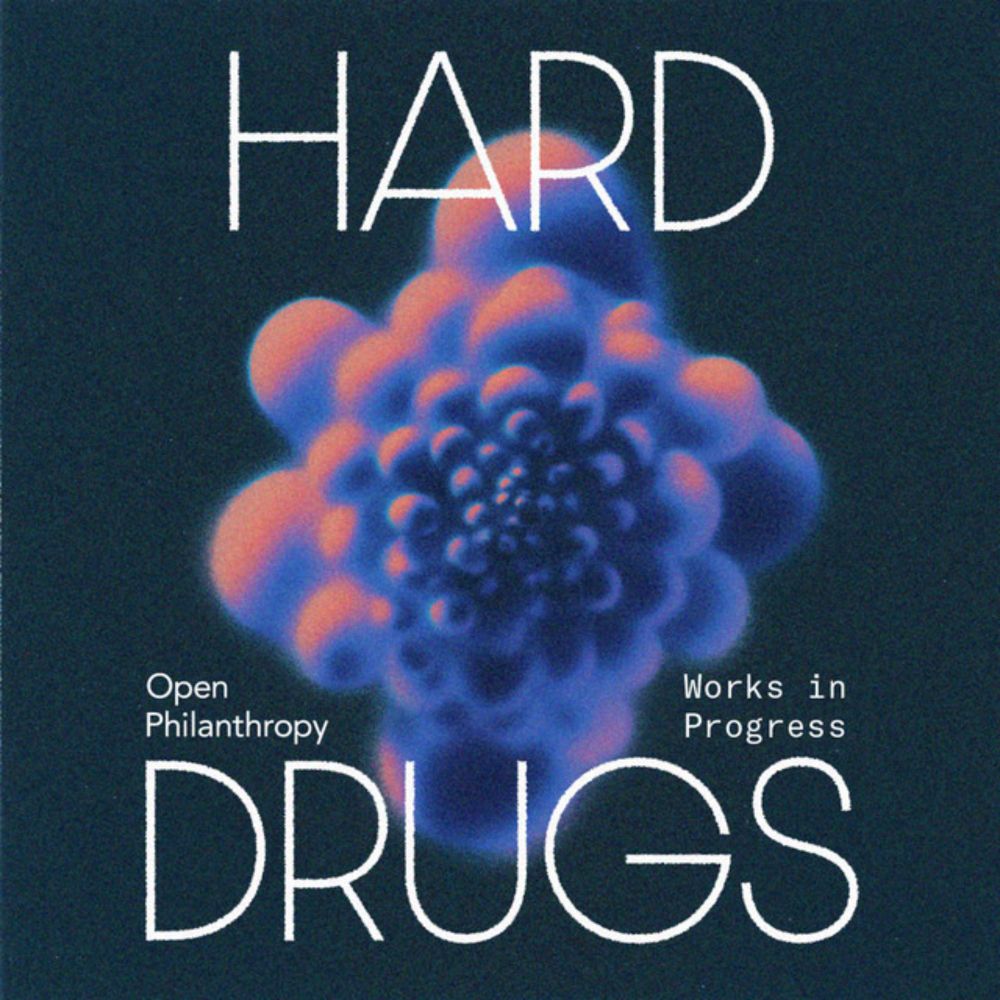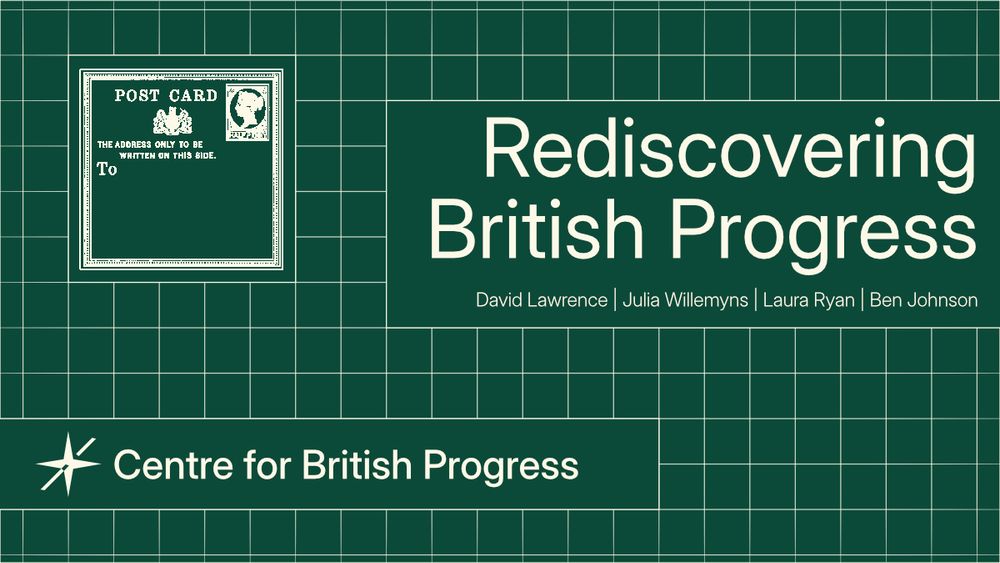
Vaccines, the most impressive public health intervention in medical history, and where we could be headed if there was not efforts to negate truth, facts, and evidence
A great, open-access, review and perspective by @scientificdiscovery.dev
@bswud.bsky.social
Founder and editor of Works in Progress magazine.

Vaccines, the most impressive public health intervention in medical history, and where we could be headed if there was not efforts to negate truth, facts, and evidence
A great, open-access, review and perspective by @scientificdiscovery.dev

NEW article by me!
We can now visualize pathogens down to atoms; design vaccines in weeks; manufacture them in microbial factories; engineer them more precise than ever before.
We're living through a golden age of vaccine development, but only if we continue to invest in them.

screenshot of my post
Big new blogpost!
My guide to data visualization, which includes a very long table of contents, tons of charts, and more.
--> Why data visualization matters and how to make charts more effective, clear, transparent, and sometimes, beautiful.
www.scientificdiscovery.dev/p/salonis-gu...

Never before have I been as intrigued by a phrase as I was after reading the title "Inflatable space stations"
Super cool new article by @angadh.com on how to create artificial gravity in space 🛞
worksinprogress.co/issue/inflat...

The print edition of Works in Progress is now available in:
• Canada 🇨🇦
• Australia 🇦🇺
• the European Union 🇪🇺 🇮🇪 🇩🇪
Subscribe today for 6 beautiful issues a year. The first edition ships in 2 weeks! 🥳
worksinprogress.co/print/

Drugs that last for months. A new generation of long-acting drugs like lenacapavir points to a different approach to prevention: take one dose, stay protected for half a year (and possibly more). What are the different ways scientists are designing medicines that last so long in the body, and what trade-offs come with durability? Crafting a universal flu vaccine. Each year, scientists study the strains circulating in the population, predict which will dominate, and reformulate the vaccine to match. When those predictions miss, protection drops, and updating the formulation takes time. Could we create a single vaccine that protects against all forms of influenza?

The mosquito we should just get rid of. One mosquito species is responsible for most cases of dengue, Zika, yellow fever, and chikungunya: Aedes aegypti. It thrives in cities, breeding in bottle caps and flower pots, and has adapted perfectly to human life. But now scientists have tools, like gene drives and Wolbachia bacteria, to suppress or even eliminate it. What makes this one mosquito species so harmful to us? How might we eliminate it? Successful pension reforms in recent history. Australia successfully moved its population to a retirement savings plan (‘Superannuation’) in the early 1990s. Silvio Berlusconi’s governments in Italy drove reforms that moved much of the population from ‘defined benefit’ pensions to savings-focused ‘defined contribution’ pensions. What can other states learn from these experiences to reduce their own future retirees’ dependence on working age populations?

Heathrow’s surprising efficiency. Europe’s busiest airport desperately needs more physical infrastructure, especially runways. But it is remarkable how well it has done with just the two runways that it has. What has it done to engineer around this constraint? Everyday progress in cosmetic technology. Plastic surgery was once a byword for wealth but many interventions are now commonplace. The frontier seems to be pushing out as well: consider the latest Kardashian facelift or the improvement of hair systems. We want to read a piece on the lack of stagnation in appearance-enhancement, either a case study on a specific procedure or an article on the field overall. Blockers to AI automation. We recently ran a piece on why AI hasn’t replaced radiologists. What are similar stories in other fields? The type of piece we will consider is a detailed case study of capability that already (plausibly) exists, but that has been less impactful than people hoped. We’re not that interested in speculation based on abilities that models may have in the future. Inversely, if there are areas which haven’t been covered well elsewhere where models have been surprisingly effective at displacing humans, feel free to pitch us as well.

The land that lived with malaria for millennia. For thousands of years, malaria haunted the Italian peninsula, from the Pontine marshes near Rome to its southern coasts. Then, within a few decades in the mid-20th century, it was eliminated. How did a disease so deeply rooted in Italy’s history disappear so quickly, and what does the story tell us about public health and environmental change? Why does Asia have higher density than Africa? Across MENA, South Asia, and South-East Asia, many cities are made up mostly of mid-rise apartment buildings, often clustered together at densities equal to or greater than those of nineteenth century Europe. In Sub-Saharan Africa, by contrast, urban densities tend to be low, with single-story buildings making up most of the urban area. This pattern holds even in cases of African countries with higher incomes than many Asian countries (e.g. Botswana, South Africa, Gabon, Rwanda). What is the cause of this? What does it teach us about the drivers of urban density?
Write for us!
Here are 26 ideas of articles we'd like to commission.
www.worksinprogress.news/p/more-artic...

Works in Progress - Now in print.
Five years after we started it, I'm super happy to share that Works in Progress is now available as a print magazine! 🥹
It'll have everything on web and more. You can subscribe today for $100/£75 to receive 6 beautiful, 120-page issues of our magazine a year.
worksinprogress.co/print

From article, map of 30+ North American cities that have adopted Shoup's ideas abolished minimum off-street parking requirements citywide. Not shown: Anchorage, which did this in 2022.
From @worksinprogress.blogsky.venki.dev, a tribute to Daniel Shoup, the Savanarola of Parking, the Jane Jacobs of Stationary Vehicles, who died on February 6: worksinprogress.news/p/the-prophe... Map shows N. American cities Shoup's ideas have changed.
20.02.2025 01:54 — 👍 7 🔁 5 💬 0 📌 0
"France built 40 nuclear reactors in a decade. Here’s how they did it, and how the world can follow their lead today."
https://worksinprogress.co/issue/liberte-egalite-radioactivite/

I'm usually not a train history enthusiast, but I loved this piece by Benedict Springbett with a history of suburban rail & metros.
And how to connect up suburban rail lines with tunnels, to get a new metro system at a fraction of the cost of a completely new one!

I’ve written an article for @worksinprogress.bsky.social about through running. It’s the most cost-effective way of upgrading railway lines in nearly all British cities.
worksinprogress.co/issue/the-ma...

Homepage of newest issue of Works in Progress magazine, featuring pieces on through running, redrawing cities, animal drug regulation, inflation targeting, and more.
The latest issue of Works in Progress is out today!
- One weird trick to build a metro
- The FDA's secret liberalisation of animal drugs
- How Japan builds infrastructure through cities
- Brain-computer interfaces
- How NZ invented inflation targeting
And more! worksinprogress.co

LAUNCH DAY 🚀
Today I’m launching a new podcast, Hard Drugs, with Jacob Trefethen (@jacobtref.bsky.social)
Our first episode is about lenacapavir — a new HIV drug that blocks infections with an efficacy rate of nearly 100%, and which could completely change the fight against HIV worldwide.

Unfortunately housing theory of everything is correct and you can't unsee it once you see it:
worksinprogress.co/issue/the-ho...

Cover of the essay Rediscovering British Progress available at https://britishprogress.org/articles/rediscovering-british-progress
💫 We’re launching the Centre for British Progress
Our founding essay: Rediscovering British Progress is a case for growth that drives shared progress, rooted in Britain's values and industrial heritage.
It all starts with a postcard from 1870 👇
britishprogress.org/articles/red...

Incredibly good historical account of land taxes and why they failed under Lloyd George
worksinprogress.co/issue/the-fa...
Note to self: read more Works in Progress!
@watlingsamuel.bsky.social is the author I think

Many women face a choice between career advancement and motherhood. But emerging technologies could allow women to have it all.
All in this piece on how the gender pay gap arises & fertility tech 🧵
worksinprogress.co/issue/fertil...

Reading an excellent article on pineapples rn which really makes me want to go buy one worksinprogress.co/issue/king-o...
14.03.2025 13:22 — 👍 14 🔁 3 💬 4 📌 0
Nice article by my friend John Halstead and Phil Thomson
The title might undersell it a bit, though - the most interesting and important part is imo about comparably low rates of intergroup violence among hunter-gatherers. (And the reasons farmers were different)
worksinprogress.co/issue/the-pr...
Ever wonder why apartment buildings look the way they do? I wrote an article on the building and zoning codes - such as height limits in the US and daylight access in China - that determine the design of apartments.
worksinprogress.co/issue/chines...

"Our ancestral environment therefore created evolutionary pressures that equipped us with a natural aversion to violence, a taste for vengeance, and the capacity to solve conflicts through cooperation."
Again, retaliation against bastards UNDERPINS mutual aid.
worksinprogress.co/issue/the-pr...

Homepage of Works in Progress magazine, with articles: Steam networks, King of fruits, Fertility on demand, The rise and fall of the Hanseatic League, The prehistoric psychopath, The failure of the land value tax, Chinese towers and American blocks.
Our latest issue of Works in Progress dropped today!
- The steam networks of NYC
- Prehistoric violence
- Urbanism with Chinese characteristics
- Extending the fertility window
- The Hanseatic League's rise and fall
- The pineapple: the king of fruits
- The land value tax
worksinprogress.co
Especially liked this one
worksinprogress.co/issue/the-fa...

Whether xiaoqu, 5-over-1, or urban villages, with near certainty we can predict what new Chinese and American neighborhoods will look like by extrapolating from two publicly available documents that 99 percent of their residents have never heard of: the US International Building Code and the Chinese national code. This should make us more optimistic about the ability of vigorous reformers to change and improve cities. Modern urban form is not always, and perhaps not even usually, an emanation of deep cultural preferences. Changing it does not necessarily mean changing the hearts of millions of people. To build very differently would not take overthrowing twenty centuries of urban culture. It would merely mean tweaking these obscure and somewhat arbitrary documents.
Love this big finish by @alfredtwu.com comparing the history & outcomes of Chinese & US housing regulations worksinprogress.co/issue/chines...
13.03.2025 17:06 — 👍 4 🔁 2 💬 0 📌 0
Dora is going to be a lamb in next week’s nativity.
09.12.2024 09:20 — 👍 4 🔁 0 💬 0 📌 0
Madrid's metro system in 1994 - diagram of metro lines

Madrid's metro system after 2007 - diagram of metro lines.
Madrid tripled the length of its metro system in just 12 years, faster and cheaper than almost any other city in the world.
Left: in 1994
Right: after 2007
Cost per mile: £64–91 million
(around 7x cheaper than London's Jubilee & Northern line expansions & 14x cheaper than Toronto's Ontario line)

Does HS2 have a future?
And why does that question hinge on an unseen government document and a sugar mill in Nottinghamshire?

It’s widely accepted *that* less expensive housing markets see less homelessness, but this important piece shows *why*: family & friends have more space to spare worksinprogress.co/issue/why-ho...
05.12.2024 18:18 — 👍 420 🔁 147 💬 11 📌 16
Survivorship bias is empirically incorrect. Here is a careful study worksinprogress.co/issue/agains...
06.12.2024 08:41 — 👍 1 🔁 0 💬 0 📌 0
Bsky folks and #EconSky,
The cool people at @worksinprogress.bsky.social invited me to write an article for their December issue about the fascinating story of innovation in US dairy genetics. Roughly based on some of my research in this area.
My highlights:
worksinprogress.co/issue/how-bi...